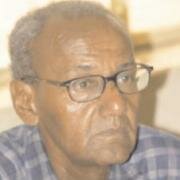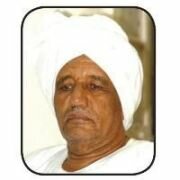After almost three years of the National Dialogue deliberations at various formats the big political exercise hosted in the friendship Hall
is coming to a close. Though there are some specific recommendations adopted, but by the very nature of such debates given the huge number of participants and the diverse issues involved, there is natural tendency to be vague and general in nature since the end goal is to reach consensus and agreements.
The question now is what next and will this exercise lead to a breakthrough in the political scene?
A quick visit to recent history can provide some answers. It is almost 27 years todate that the National Dialogue Conference concluded its deliberations on October 12, 1989 following a month of discussions that have started September 9 in the same year. The declared objective was for the new Ingaz government to come up with a view that will help it unify the domestic front and then start a serious talk with the rebel movement.
The mere fact that after 27 years Sudan comes to start a new the same exercise shows clearly that nothing much has been achieved in this particular front. In fact the situation is more complicated than it was more than quarter a century ago. Then there was one rebel movement. Over time those rebel movements have mushroomed, getting new areas of Darfur, Blue Nile and Southern Kordofan are added to the conventional rebel ground of Southern Sudan. Moreover, the South has gone its own way opting for separation.
One of the main defects that have crippled the first National Dialogue and may impact the present one is the absence of the opposition be it armed groups or civilian ones.
However, keeping fingers crossed one hopes that three issues will dominate the scene and open the way and sending messages that can help in answering the question of what next and put the country along the path of change.
The first is to take some measures and decisions in terms of creating a conducive environment for political and freedom of expression. High on this is to allow for political forces to assemble freely and conduct their activities in the public without legal restrictions. Equally it is high time to change the law that allows the security forces to confiscate newspapers without giving even an explanation.
The second message that needs to be adopted and sent is the formation of a new government that reflects the real needs and programs adopted, not a power sharing arrangement, where rebel groups were compensated for their rebellion under the pretext of compensating marginalized regions.
The third and most important is whether any measures taken will have some impact on the people’s lives. Needless to say the economic conditions have reached an unprecedented level of suffering due to the growing gap between production and consumption.
The first step to address this issue is to stop the war that has been raging in three regions. The way before the government is either to use the outcome of the National Dialogue to engage into a serious dialogue to end the war or use this popular base for peace making, building, maintaining and forcing it in the end.
-
Focus: You Must Be Kidding (3-4)
-
Wake-up Call: Chemical Weapons AllegationsNext >


